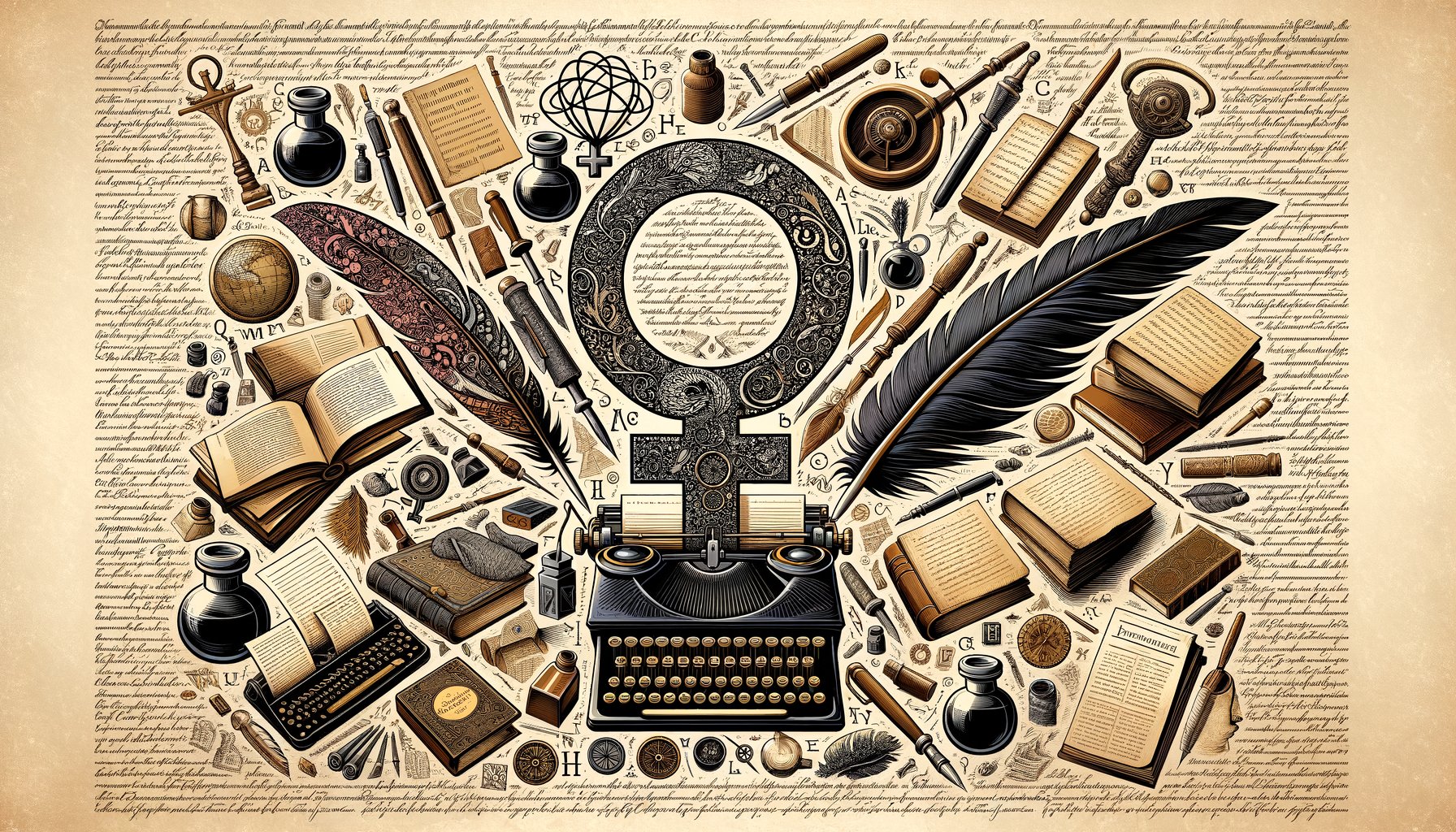Physical Address
304 North Cardinal St.
Dorchester Center, MA 02124
Physical Address
304 North Cardinal St.
Dorchester Center, MA 02124

“
Oh, what a joy it is to delve into the world of literature, especially when that world is filled with strong, empowering women who have used their words to shape society and inspire generations. The influence of historical women writers on today’s feminism is as vast as the ocean and as profound as the deepest trench within it. These trailblazers have paved the way for modern-day feminists, leaving behind a legacy that continues to impact our understanding and practice of equality.
Let’s start our journey by hopping into our literary time machine and traveling back to meet some pioneers. Among them are Mary Wollstonecraft, Virginia Woolf, Simone de Beauvoir – just to name a few. Their writings were revolutionary during their time and remain relevant today.
In 1792, Mary Wollstonecraft published “A Vindication of the Rights of Woman“, one of the earliest works advocating for gender equality. Her radical (for her time) ideas about women’s education and social rights laid groundwork for future feminist movements.
Fast forward to the early 20th century; we encounter Virginia Woolf with her iconic essay “A Room of One’s Own“. She highlighted how societal structures often hindered women from realising their creative potential. Her call for financial independence and personal space for women resonates even in today’s feminist discourse.
Then we have Simone de Beauvoir whose seminal book “The Second Sex” became a cornerstone for contemporary feminism. Beauvoir dissected society’s treatment of women as ‘the other’ sex, challenging traditional notions about femininity.
These women, with their revolutionary ideas, challenged the status quo and paved the way for future generations. They questioned societal norms, fought for equality, and through their writings, inspired countless women (and men) to do the same.
Today’s feminism is a testament to these historical figures. Their influence can be seen in the continued fight for pay equity, reproductive rights, education opportunities, and against gender-based violence. Their words have sparked movements and fuelled revolutions.
The power of these women’s words cannot be underestimated. They have shaped our understanding of feminism and continue to inspire feminist thought today. The written word has always been a powerful tool for change – it can challenge beliefs, inspire action, and create dialogue.
Writers like Chimamanda Ngozi Adichie with her book “We Should All Be Feminists“, Roxane Gay with “Bad Feminist“, or Rebecca Solnit with “Men Explain Things To Me” are modern-day torchbearers of feminist literature. They carry forward the legacy left by their predecessors while adding their unique perspectives on contemporary issues.
The influence of these historical women writers extends beyond academia into pop culture as well. Television shows like “The Handmaid’s Tale“, based on Margaret Atwood’s novel; movies like “Little Women“, adapted from Louisa May Alcott’s classic novel; or even Beyoncé sampling Chimamanda Ngozi Adichie’s TED talk in her song “Flawless”, all exemplify how these writers’ thoughts continue to permeate our society.
In conclusion…wait a minute! Who needs conclusions when we have a plethora of inspiring women writers to learn from? So, instead of wrapping up, let’s just say that the influence of historical women writers on today’s feminism is undeniable. They have shaped our understanding of gender equality and continue to inspire us with their powerful words.
So the next time you pick up a book by a woman writer, remember the journey it took for that book to exist. Remember the courage and resilience of those who dared to challenge societal norms and paved the way for future generations. And most importantly, remember that each page you turn is not just a story; it’s part of a larger narrative – one that continues to evolve and inspire change.
“